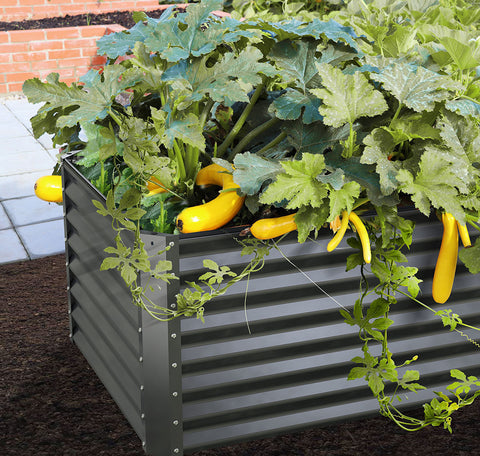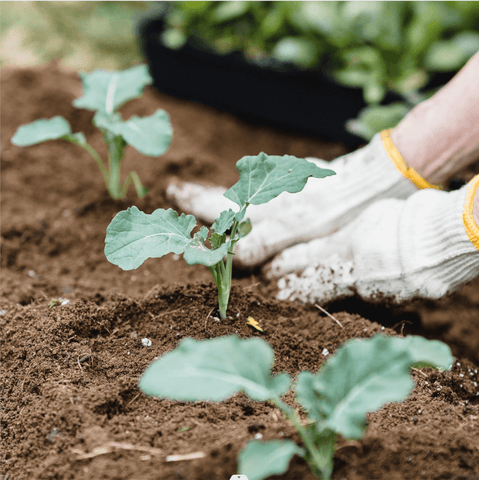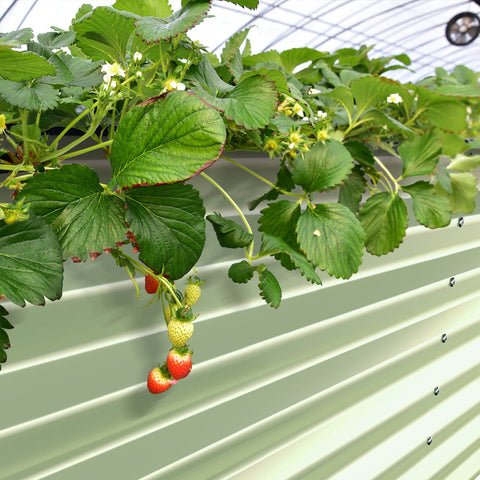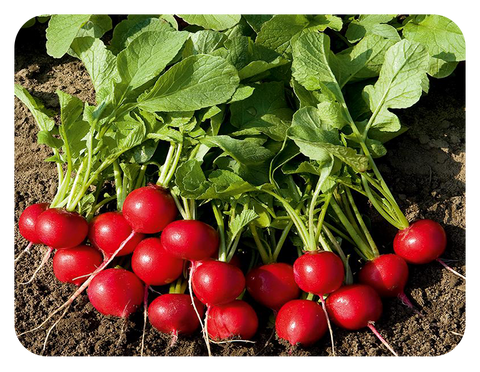Lauri Kranz, founder of Edible Gardens LA, has designed landscape and edible gardens and co-authored Garden Everywhere, which details how to grow your own beautiful edible garden. Edible Gardens Los Angeles provides Los Angeles residents with fresh produce from their own farms and local farms in Los Angeles. The following content also has some reference value for raised garden beds.
When it comes to growing your own food, Kranz stresses the importance of learning by doing. "My biggest piece of advice is don't expect to know everything before you start and don't pressure yourself," Kranz said. "You build your own relationship with your garden."

We talked to Kranz about how to prepare and plant your raised bed's edible garden. Read on to learn more about how to grow plump, juicy vegetables this spring.
How do you recommend preparing your vegetable patch?
The first thing to do is to fill them with good, rich, organic soil. I recommend people try it, it's not always possible, but it's best to find a local organic soil producer so you can get plenty of organic soil. I fill the last inch or two of the bed with organic soil, then put compost about two inches below the top. I find this is great for new planting of both seedlings and seeds, and as the soil is watered, compost drips down to nourish the roots.
Once you've had a growing season, you definitely want to repair it with good quality compost, but when you first fill your bed with organic soil, that's already very rich soil, so spreading rich compost on top will really speed up the growth of seedlings and seeds.
What are some common problems that people encounter when growing vegetables?
Something to consider when growing your own food is that vegetable plants are much more tender than what most people grow on a regular basis. In terms of landscape, they need extra attention, which is very doable, and care. So some of the problems that people have can be solved as easily as water, but you have to understand how much the garden really needs, which is different from how much the rest of the garden needs.
How do you monitor watering your edible garden bed?

If you are using droppers and timers on vegetables, which I recommend, they need to have their own valves and timers so that you can easily adjust their water requirements. Sometimes over-watering can weaken plants and you really need to think about the needs. Sometimes the top of the dirt looks dry, but seedlings start out with shallow roots that can get deeper, so you want to make sure you don't overwater because you can limit the plant's yield. Some plants need more water, and in addition to using irrigation, you'll need to be prepared during the hottest part of the growing season, when you may need to water manually.
When you have drip irrigation pipes, they do have droppers where the water comes out, so I tend to plant plants that need more water where the dropper is so they can get more water. You want to keep plants like tomatoes moist but separate from each other, so plant them away from leaks. You can use what you have and you want to watch your irrigation and where the drip falls.
What's the best way to keep your garden stable?
I love working with clients to make them see their time in the garden as an enjoyable and joyful experience. What I try to do is get people to start or end their day in the garden, which are cooler periods and it's more enjoyable to come out with a cup of coffee or a glass of wine. You want to be in your own garden, tending your garden, and with a raised platform there are fewer weeds, so you don't have to tend, but help the beans grow to the trellis, or watch the tomatoes plump, and helping to support the vegetables properly as they grow is a really lovely job. What's really important in the garden is that food needs to be harvested when it's ripe.

What are the most important things to do when harvesting an edible garden?
A lot of people think they'll keep their food until they're ready to eat it, but if you wait too long, the food will rot and attract small animals. They also don't taste as good, and when you grow your own food, even if you harvest it before you're ready to use it, you still eat better than something from the grocery store.
Harvest when you're ready, take care of your crops, and feed them along the way. I like to dilute it with compost and seaweed products, both of which are great ways to support healthy growth and add nutrients.
What does a healthy vegetable garden mean?
I think the hardest thing for people is that sometimes when they grow their own food, it's hard to tell when it's ripe and it's important to experiment. You need to know that mistakes will be made, and not just the ones we make as gardeners. In some seasons, animals will come into your garden, or in other seasons, you are barely disturbed, but going into your garden and planting will be your best teacher. Working in your own garden is part of your education as a gardener, and it's a very humble and beautiful task, a job growing your own food. You're going to have great success, you're going to have high yields, sometimes you're going to have bad harvests. Even the most experienced gardener can fail, so spending time in your garden will give you a better understanding of it.
What's your favorite vegetable to grow?
My favorite vegetable is broad beans. They grow beautifully in the garden, with lush greenery and flowers that eventually turn into broad bean pods. They are mass producers and resistant to wildlife. I tend to plant broad beans in areas of the garden that are most vulnerable to animal infestation, as they help keep animals away. The roots of broad beans add nitrogen to the soil. They're a healthy vegetable for our soil and our bodies - and delicious!
Do you have any advice for first-time gardeners?
My biggest advice is, don't expect, don't put pressure on yourself, you should know everything before you start. You're going to have your own relationship with your garden, and there will be times of extraordinary success and there will be times of frustration, but it's important to keep doing it, because just by turning up, putting your hand in the soil and working in a garden that is very personal to you, you'll be on a wonderful journey of food that grows in a different way.

What are your favorite gardening tools?
I only use a few different tools, and I like good scissors. It really helps me, especially when I want to take out old season, like sugar snap peas or climbing beans. A good set of scissors is the best tool a gardener can have, and you can pull it out of your apron or pocket to use it.









